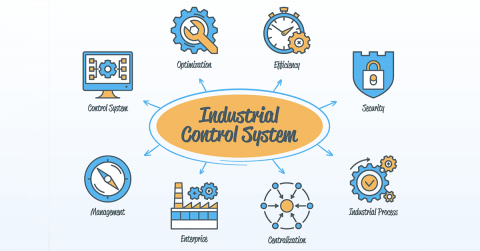Public policy
The relevant laws and policies for delivering better digital services
Public policy plays a vital role in how federal programs serve the public. More than 100 laws, memos, and other policies impact federal websites, covering topics such as accessibility, privacy, security, design, and user experience. It is important for web and digital practitioners to understand the policy framework.
21st Century Integrated Digital Experience Act and OMB M-23-22

Public policy: Essential knowledge
-
Requirements for strengthening the federal government’s commitment to digital accessibility
Understanding Section 508 of the Rehabilitation Act of 1973, Section 508 standards, and OMB M-24-08.
-
Requirements for transforming federal customer experience and service delivery
Understanding Executive Order 14058 and OMB Circular A-11, Section 280 (2024).
-
Requirements for delivering a digital-first public experience
Understanding the 21st Century Integrated Digital Experience Act and OMB M-23-22.
-
Requirements for the registration and use of .gov domains in the federal government
Understanding the DOTGOV Online Trust in Government Act and OMB M-23-10.
-
Requirements for improving access to services for people with limited English proficiency
Understanding Executive Order 13166, Attorney General memorandum, and Title VI of the Civil Rights Act.
-
Requirements for improving the management of federal programs and projects
Understanding the Program Management Improvement Accountability Act and OMB M-18-19.
Public policy events
The plain language tie to translating digital content
2022 Federal Plain Language Summit
Increase Your Impact With Plain Language
Plain Language + Compassion Help People in Crisis
Public policy news
OMB M-15-13, Policy to require secure connections across federal websites and web services (PDF, 258 KB, 5 pages, June 2015)
Ensuring government websites are secure and the public's interactions with those websites to be private. — via The White House

User research and the Paperwork Reduction Act
User research is an important part of customer experience transformation. Different types of research require different approval under the Paperwork Reduction Act (PRA). Through seven case studies, the U.S. Digital Service shows how agencies conducted valuable user research that did not require PRA approval and successfully integrated findings into their projects. Their work illustrates how thoughtful user research transforms delivery of services and helps agencies build trust in government. — via U.S. Digital Service

Department of Justice recognizes anniversary of executive order to improve access for people with limited English profiency
The Department of Justice recently marked the 24th anniversary of Executive Order 13166, which aims to improve access to federal services for individuals with limited English proficiency (LEP). Its Civil Rights Division reviewed language access plans across federal agencies, emphasizing progress in hiring and staff training, improving language assistance services, and expanding multilingual content. The department is committed to eliminating language barriers in federal programs, improving communication and access for all communities. — via Department of Justice

IT warning banners: How GSA is working to stop unnecessarily frightening users
OMB Memo M-23-22 discourages the use of pop-ups and modals. GSA IT updated security policies so that IT warning banners are presented less intrusively to users.
Bridge the gap between policy and implementation: Impactful solutions and strategies for success from Digital.gov’s spring 2024 summit
The summit highlighted digital transformation, emphasizing the significance of recent OMB memos for improving accessibility and customer experience.
Resources on Public policy
-
M-19-17 Enabling Mission Delivery through Improved Identity, Credential, and Access Management
This 2019 memorandum sets forth the federal government’s Identity, Credential, and Access Management (ICAM) policy.
-
Checklist of requirements for federal websites and digital services
Links to relevant laws, policies, and regulations for federal agencies.
-
Requirements for plain writing
Learn how to strengthen the use of plain language within your federal agency.
-
Requirements for achieving efficiency, transparency, and innovation through reusable and open source software
Learn how Federal Source Code Policy supports reuse and public access to custom-developed federal source code.
-
Requirements for transforming federal customer experience and service delivery
Learn how to strengthen customer experience and service delivery within your federal agency.
-
Requirements for strengthening the federal government’s commitment to digital accessibility
Learn how to implement Section 508, and strengthen and maintain your agency’s commitment to digital accessibility.
-
Requirements for the registration and use of .gov domains in the federal government
Learn how to implement the DOTGOV Online Trust in Government Act and understand how to register federal internet domain names.
-
Requirements for improving access to services for people with limited English proficiency (LEP)
Learn how to strengthen and improve meaningful language access for all people in the U.S., regardless of the language they speak.
-
An introduction to the Digital Experience Council
The Digital Experience (DX) Council plays a critical role in coordinating governmentwide efforts and assisting agencies in delivering digital experiences that meet the public’s needs and expectations.
-
An introduction to web security
Guidance on meeting security requirements for federal websites.
-
An introduction to ATOs
What is an Authorization to Operate? Before you use software in government, you need to make sure it is allowed. You should know what an ATO is, and when you need one.
-
An introduction to security and privacy controls
What do the control families of NIST 800-53 mean? Here’s an overview of the control families that create the foundation of federal security compliance.
-
Federal-compatible terms of service agreements
Agreements negotiated between the federal government and vendors who offer digital tools and services.
-
OMB M-15-13, Policy to require secure connections across federal websites and web services (PDF, 258 KB, 5 pages, June 2015)
This memo requires that all publicly accessible federal websites and web services only provide service through a secure connection. The strongest privacy and integrity protection currently available for public web connections is Hypertext Transfer Protocol Secure (HTTPS). The memo also provides guidance to agencies for making the transition to HTTPS and a deadline by which agencies must be in compliance.
-
M-24-08 Strengthening Digital Accessibility and the Management of Section 508 of the Rehabilitation Act
Provides requirements and recommendations to support agency integration of digital accessibility into their missions and operations, helping government technology and information resources better serve a diverse public and federal workforce.
-
M-23-07, Update to Transition to Electronic Records
M-23-07 updates the previous target dates described in M-19-21 to June 24, 2024.
-
Executive Order 14091, Further Advancing Racial Equity and Support for Underserved Communities Through the Federal Government
By advancing equity, the federal government can support and empower all Americans, including the many communities in America that have been underserved, discriminated against, and adversely affected by persistent poverty and inequality. We can also deliver resources and benefits equitably to the people of the United States and rebuild trust in Government.
-
M-23-10: The Registration and Use of .gov Domains in the Federal Government
Provides guidance to all federal agencies on the acceptable use and registration of Internet domain names as required by the DOTGOV Online Trust in Government Act of 2020.
-
Chief Information Officer (CIO) Handbook
This handbook aims to give CIOs important information needed to be a technology leader at their respective agency.
-
DOTGOV Online Trust in Government Act of 2020
Title IX of Public Law No. 116-260, §§ 901-907 (DOTGOV Act of 2020), which outlines responsibilities, authorities, duties, strategies, and requirements related to the process of creating top-level .gov domains, authorizes the Cybersecurity and Infrastructure Security Agency (CISA) to manage the domain registration process for federal, state, local, tribal, and territorial governments.
-
OMB M-20-19
Harnessing Technology to Support Mission Continuity
-
The website standards
As defined in 21st Century IDEA, the Design System incorporates federal standards to improve federal websites and digital services.
-
OMB Circular A-11 Section 280: Managing Customer Experience and Improving Service Delivery
Guidance on how to measure customer experience, including questions on satisfaction and confidence and trust in section 280.7
-
Implementation of the Government Paperwork Elimination Act
The Office of Management and Budget (OMB) provided this guidance to implement the Government Paperwork Elimination Act (GPEA). GPEA required Federal agencies, by October 21, 2003, to allow individuals or entities that deal with the agencies the option to submit information or transact with the agency electronically, when practicable, and to maintain records electronically, when practicable.
-
Making Open and Machine Readable the New Default for Government Information
Openness in government strengthens our democracy, promotes the delivery of efficient and effective services to the public, and contributes to economic growth. As one vital benefit of open government, making information resources easy to find, accessible, and usable can fuel entrepreneurship, innovation, and scientific discovery that improves Americans’ lives and contributes significantly to job creation.
-
GOV Domain Registration Process Final Rule
This final rule provided a new policy for the .gov domain that will be included in the Federal Management Regulation.
-
Digital Millennium Copyright Act
The Digital Millennium Copyright Act (DMCA) is a United States copyright law that implements two 1996 treaties of the World Intellectual Property Organization (WIPO).
-
U.S. Trademark Law
United States trademark law is mainly governed by the Lanham Act.
-
Code of Federal Regulations (CFR), Parts 1220-1238
Subchapter B of the CFR specifies polices for federal agencies records management programs relating to proper records creation and maintenance, adequate documentation, and records disposition. View Code of Federal Regulations (CFR), Parts 1220-1238 Related Links NARA guidance for implementing Section 207(e) of the E-Gov Act NARA guidance on managing web records NARA Bulletin 2014-02 Guidance
-
Children’s Online Privacy Protection Rule (COPPA Rule)
The Rule imposes certain requirements on operators of websites or online services directed to children under 13 years of age, and on operators of other websites or online services that have actual knowledge that they are collecting personal information online from a child under 13 years of age.
-
Appendix I to OMB Circular No. A-130 Federal Agency Responsibilities for Maintaining Records About Individuals
This Appendix describes agency responsibilities for implementing the reporting and publication requirements of the Privacy Act of 1974, 5 U.S.C. 552a.
-
Guidance for Agency Use of Third-Party Websites and Applications
This Memorandum requires Federal agencies to take specific steps to protect individual privacy whenever they use third-party websites and applications to engage with the public.
-
No FEAR Act
The No FEAR Act requires a Federal agency to post on its public Web site summary statistical data pertaining to complaints of employment discrimination filed under 29 CFR part 1614 by employees, former employees and applicants for employment.
-
Executive Order 13571 — Streamlining Service Delivery and Improving Customer Service
Executive Order 13571 requires agencies that provide significant services directly to the public to identify and survey their customers, establish service standards and track performance against those standards, and benchmark customer service performance against the best in business.
-
M-10-22 Guidance for Online Use of Web Measurement and Customization Technologies
On January 21, 2009, the President issued a memorandum calling for the establishment of “a system of transparency, public participation, and collaboration.” The memorandum required an Open Government Directive to be issued by the Director of the Office of Management and Budget (OMB), instructing “executive departments and agencies to take specific actions implementing the principles
-
U.S. Access Board Section 508 Standards
The Section 508 Standard for Electronic and Information Technology requires that when a federal agency shares information digitally, individuals with disabilities seeking information or services from a federal agency, must have access to and be able to use the information and data, unless an undue burden would be imposed on the agency.
-
E-Gov Act of 2002
The purpose of the E-Government Act of 2002 includes improving the management and promotion of electronic government services and processes, and establishing a framework of measures that require using Internet-based information technology to improve citizen access to government information and services.
-
OMB memo: Testing and simplifying federal forms
This memo sets forth that "To the extent feasible and appropriate, especially for complex or lengthy forms, agencies shall engage in advance testing of information collections, including Federal forms, in order (1) to ensure that they are not unnecessarily complex, burdensome, or confusing, (2) to obtain the best available information about the likely burdens on members of the public (including small businesses), and (3) to identify ways to reduce burdens and to increase simplification and ease of comprehension. Such advance testing should occur either before proposing information collections to the public or during the public comment period required by the PRA."
-
OMB M-11-24, Implementing Executive Order 13571 on Streamlining Service Delivery and Improving Customer Service (PDF, 6 pages, 2.37 MB, June 2011)
In Executive Order (EO) 13571 , issued on April 27, 2011 , President Obama stated that, "with advances in technology and service delivery systems in other sectors, the public's expectations of the Government have continued to rise," and that the Government "must keep pace with and even exceed those expectations." In addition, the President made clear that the Government "must also address the need to improve its services, not only to individuals, but also to private and Governmental entities to which the agency directly provides significant services." This memo provides guidance for implementing EO 13571.
-
Executive Order 13571, Streamlining Service Delivery and Improving Customer Service
EO 13571 mandates federal agencies providing significant services to the public: identify & survey customers, establish service standards, track performance against those standards, & benchmark customer service performance against top business practices.
-
Guidelines on securing public web servers
The World Wide Web (WWW) is a system for exchanging information over the Internet. At the most basic level, the web can be divided into two principal components: web servers, which are applications that make information available over the Internet (in essence, publish information), and web browsers (clients), which are used to access and display the information stored on the web servers. This document focuses on the security issues of web servers.
-
Web Accessibility Guidelines (WCAG)
The Web Content Accessibility Guidelines (WCAG) documents explain how to make web content more accessible to people with disabilities. Web “content” generally refers to the information in a web page or web application, including: natural information such as text, images, and sounds code or markup that defines structure, presentation, etc. View the Web Accessibility Guidelines
More News and Events on Public policy
27 posts
User research and the Paperwork Reduction Act
User research is an important part of customer experience transformation. Different types of research require different approval under the Paperwork Reduction Act (PRA). Through seven case studies, the U.S. Digital Service shows how agencies conducted valuable user research that did not require PRA approval and successfully integrated findings into their projects. Their work illustrates how thoughtful user research transforms delivery of services and helps agencies build trust in government. — via U.S. Digital Service

Department of Justice recognizes anniversary of executive order to improve access for people with limited English profiency
The Department of Justice recently marked the 24th anniversary of Executive Order 13166, which aims to improve access to federal services for individuals with limited English proficiency (LEP). Its Civil Rights Division reviewed language access plans across federal agencies, emphasizing progress in hiring and staff training, improving language assistance services, and expanding multilingual content. The department is committed to eliminating language barriers in federal programs, improving communication and access for all communities. — via Department of Justice

IT warning banners: How GSA is working to stop unnecessarily frightening users
OMB Memo M-23-22 discourages the use of pop-ups and modals. GSA IT updated security policies so that IT warning banners are presented less intrusively to users.
Bridge the gap between policy and implementation: Impactful solutions and strategies for success from Digital.gov’s spring 2024 summit
The summit highlighted digital transformation, emphasizing the significance of recent OMB memos for improving accessibility and customer experience.
FedRAMP governance
The Federal Risk and Authorization Management Program (FedRAMP) has recently updated its governance structure to better serve its customers. Learn about their recently-formed FedRAMP Board, composed of federal executives; the FedRAMP Technical Advisory Group (TAG), composed of technology experts; and updates made to the Federal Security Cloud Advisory Committee (FSCAC). These groups collectively aim to strengthen and expand FedRAMP’s cloud service capabilities. — via FedRAMP

Justice department to publish final rule to strengthen web and mobile app access for people with disabilities
On April 8, Attorney General Merrick B. Garland signed a final rule under Title II of the Americans with Disabilities Act (ADA) to ensure the accessibility of web content and mobile applications for people with disabilities. This final rule clarifies the obligations of state and local governments to make their websites and mobile applications accessible. Learn more about this rule and why the Attorney General believes it will “break down barriers that have kept people with disabilities from fully participating in American Life.” — via Department of Justice

Who is controlling your control system?
Best practices for security administration of control systems and their components. Specific guidance and lessons learned from a federal information system manager.
Navigating the NIST industrial control systems overlay
A quick-start user guide for information technology professionals to begin using overlays as a part of their regular security assessments.
Why the American People Deserve a Digital Government
OMB released new policy guidance for government that includes a variety of actions and standards to help federal agencies design, develop, and deliver modern websites and digital services. Memo M-23-22, Delivering a Digital-First Public Experience, will make it seamless for the public to obtain government information and services online, and help agencies fully implement the 21st Century Integrated Digital Experience Act (21st Century IDEA). — via The White House

Strengthening information accessibility for consumers with limited English proficiency
A digital accessibility catalyst for your next policy refresh
Use GSA’s IT Accessibility Policy Framework to update digital accessibility language in your agency’s policies.
The plain language tie to translating digital content
2022 Federal Plain Language Summit
Measuring and Justifying the Government Experience
Measuring and Justifying the Government Experience—Private sector organizations use revenue as the primary measurement to justify improving experiences. Many government services don’t have revenue as a lever, so how can we justify work to improve experience? The Office of Natural Resources Revenue (ONRR) leveraged a few metrics on their team that fall into three categories: laws and regulations, improving the experience for users, and saving time for employees. — via Office of Natural Resources Revenue

U.S. Department of Defense Releases First Departmentwide Social Media Policy
The DOD released a policy that for the first time spells out, from the highest levels of the defense community, how DOD military and civilian personnel should use official social media accounts to best advance the mission of the U.S. military and further instill trust in the credibility of the DOD.
Increase Your Impact With Plain Language
Plain Language + Compassion Help People in Crisis
Language Connections: Tips to Create, Maintain, and Present Non-English Digital Content
The Weekly Ship: What It Is, Why Useful, and How To Create Your Own
The Weekly Ship: What It Is, Why It’s Useful, and How To Create Your Own—The weekly ship has been a staple of 18F projects for years. It is a way to engage partners, inform teammates, and reflect on our work. — via 18F
















